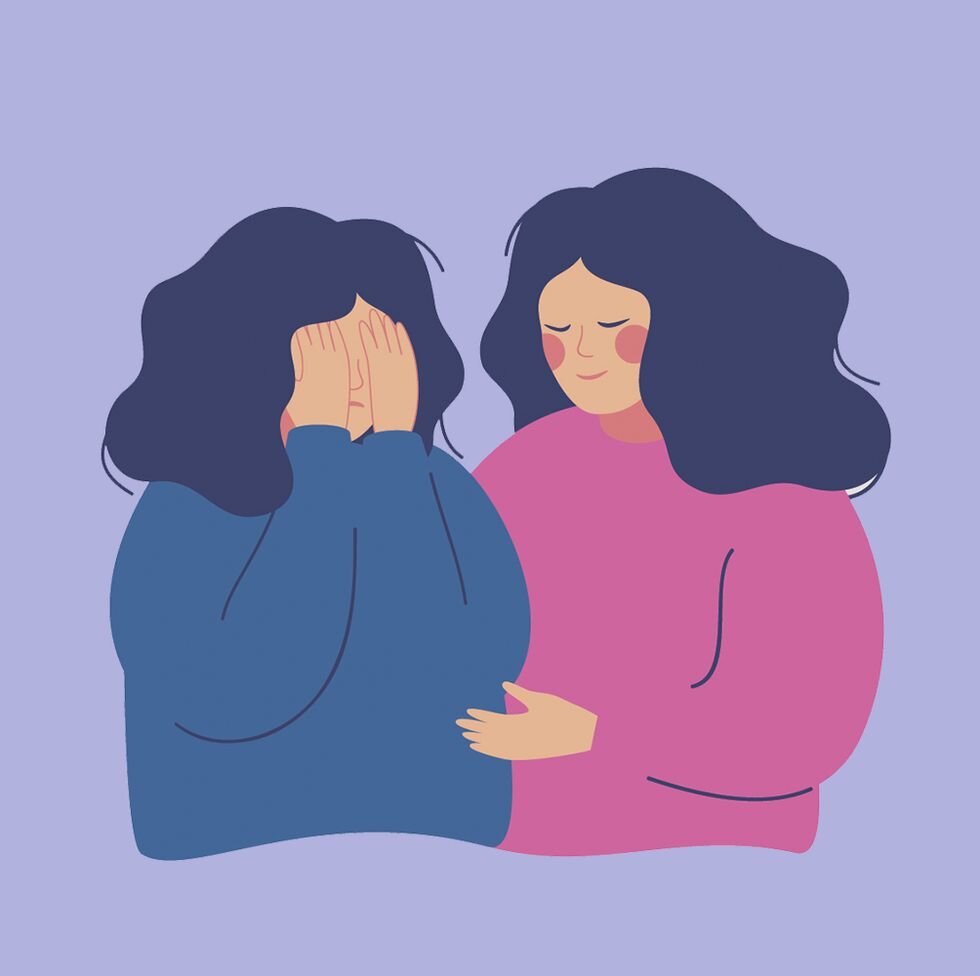When Your Friend Has an Eating Disorder
By Nicole, NAMI Dane County Intern
For about a year, I’ve been surrounded with multiple close friends struggling with eating disorders. 9% of Americans will have an eating disorder in their lifetime. A much higher percentage of people will watch a loved one struggle with an eating disorder. They will worry, research, and question what’s best for their friend, partner, or family member.
The first time I recognized that what my friend was dealing with was an eating disorder, I panicked. She wasn’t seeing a therapist and didn’t have intentions to do so. The whole conversation was messy. I was upset beyond words and struggling to keep my focus on her. My understanding of how dangerous eating disorders were left me with a bad case of information paralysis. Her vision was clouded, and mine felt disturbingly clear.
So I did exactly what someone taking four classes about mental health would do- I Googled “help, my friend has an eating disorder.” But scrolling through websites trying to find what to say, I stumbled on only what not to say. There’s a whole host of things you should never say or do around someone with an eating disorder. ‘What not to do’ is important to know, but it seemed that I could never figure out what to do. I offered words of encouragement, concern, and support, but was unsettled by how little I could do.
I wanted to help. I wanted to offer to eat every meal with my friends. I wanted to never talk about clothes, body image, or food. I wanted to push my friends to seek treatment. I wanted to never say the wrong thing and always be able to offer full support. In my head, the situation was pretty cut and dry: my friends are suffering from eating disorders, and I am not, so therefore it is my job to do whatever I can to help. My tasks seemed infinitely easier than what they were going through.
As it turns out, my job wasn’t that simple. And here’s why: doing the “right” thing for my friend was as easy as holding a marble. But I was trying to hold hundreds of marbles. By telling myself that I should have an easy time supporting each of my friends, I was undermining how much I was trying to balance. Every now and then, a marble would slip. Instead of focusing on all the marbles still securely in my hands, that one that dropped felt like a devastating loss.
Suddenly it started feeling like I had way too much control in some ways, but way too little in others. Looking around, it seemed that the people I loved kept getting smaller and smaller- and not just physically. Their presence was shrinking. They seemed fragile and vulnerable, and I was an ineffective savior. I was like a bull in a china shop, scared everything I touched would break. I realized I needed to start thinking about all of this differently, if not for them, for myself.
The most important thing I have learned about supporting a friend with an eating disorder is not from a website or book. It’s from my friend. One night, after I was telling her about how I had just spent the last hour trying to encourage my friend to get treatment, and she said, quite simply “you can’t save people.” I can listen, I can support, but only my friends can save themselves. That's a grueling truth, but it’s one I need to understand- or else every time I inevitably drop one of the hundreds of marbles, I will debilitate myself.
There are websites and articles that put everything nicely- they may have some brief, seemingly perfect phrases to use when talking to someone about their eating disorder. What online resources are missing is that these conversations don’t always go to plan. Your friend might refuse to consider treatment. They might shut down mid-conversation. They might get angry with your concern. And you might react poorly. That doesn’t mean you can’t make a world of difference for someone, it just means you can’t expect yourself to turn the world for them.
So let me add to the expansive list of things that you should not do when supporting someone with an eating disorder:
You should not expect to always say the right thing.
You should not put it on yourself to save them.
Understanding those two points has not only better protected my mental health, but also helped me to better support my friends. When I realized I didn’t have to have all the answers, it became clear that that isn’t what’s best for someone dealing with an eating disorder either. If you are looking for “what to do,” here are some ways that have been effective for helping myself while supporting friends:
Identify someone who it is safe to talk about concerns with: For example, a friend that does not have an eating disorder and feels comfortable discussing body image, food, and concerns about others.
Seek professional help when needed: Talking with a counselor, especially if you are the only person aware of the severity of a loved one’s eating disorder, can help you to feel supported and more prepared to help.
Prioritize your mental health: Setting boundaries and watching for personal negative body talk is especially important when you are interacting with a loved one who has an eating disorder.
Say what you need to say: It is okay to voice concern (without offering ultimatums or referencing worrying weight loss) and discuss being worried about not knowing what to say or do.

